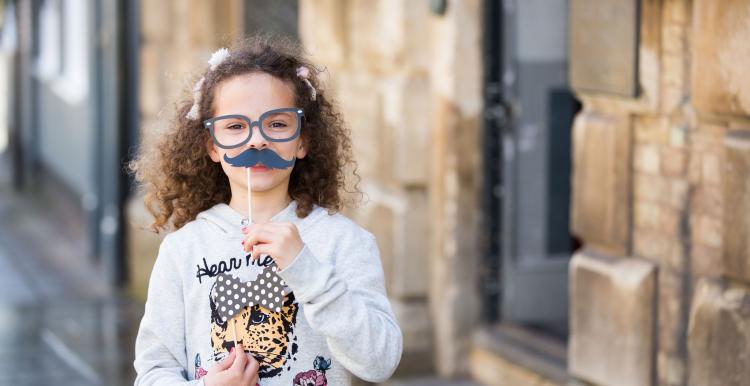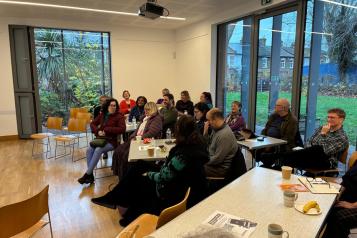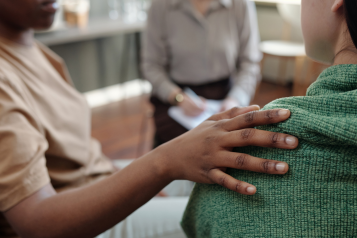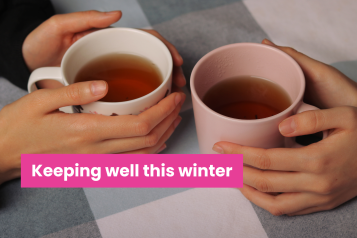Coronavirus: socially isolating?

People staying at home because of the coronavirus tend to fall into one of two groups. People who are physically distancing themselves from other people to help prevent the spread of the virus, or people who are ‘self-isolating’ because they, or someone in their household, might have the virus and do not want to pass it on.
Whichever group you fall into the following provides some ideas for how to manage your mental and physical wellbeing
1. Limit your information and go to trusted sources
Try to limit the amount of time you listen to information about the current situation and always make sure get updates from reputable sources such as the BBC or government websites:
https://www.gov.uk/guidance/wuhan-novel-coronavirus-information-for-the-public
2. Connect with friends and family
Make use of social media, e-mail and chat on the telephone. These are still good ways to keep close to the people who matter to you. As well as keeping in touch with family members why not contact someone you haven’t spoken to a while? Make a list of friends and commit to contacting different friend/s each day. Calling a friend to see how they’re doing can boost both your wellbeing and theirs.
3. Face to face contact
Learn to use Apps such as Facetime, Zoom or WhatsApp so you can see as well as chat to family and friends. If you need help to download an App ring family or friends or Age UK to get them to talk you through it. Even set up your own WhatsApp group to arrange a daily group chat.
4. Create a daily routine
Rather than relying on the TV or radio for entertainment you could try listening to music or podcasts, reading a book or starting a new hobby like researching your family tree: https://www.family-tree.co.uk/getting-started. Try setting yourself a task for each day which could range from cleaning out cupboards to trying a new relaxation technique.
5. Join a Choir
The Sofa Singers is a free weekly online singing event that aims to bring people together across the world to sing your heart out. It was set up by James Sills as a global response to the virus and is a really uplifting way to keep connected to others across the globe: https://www.thesofasingers.net/
6. Go traveling from your armchair!
Follow the link to visit some of the best museums and galleries in the world: https://www.travelandleisure.com/attractions/museums- galleries/museums-with-virtual-tours
7. Keep active!
Whether you are in the self-isolation category but symptomless or social distancing then you can still go for a walk / go outside just remember to keep your distance from others (stay 2 metres apart wherever possible).
This could be a walk round Oldham’s beautiful Alexandra Park or Daisy Nook Country Park or a trip further afield to one of The National Trust gardens which will be open free to the public, such as the Deer Park at Dunham Massey: https://www.nationaltrust.org.uk/
8. Change of scene
If you have access to a car you can go out for a drive into the countryside to get a change of scene and enjoy the spring flowers. However, Mountain Rescue services advise people to stick to walks in the countryside that they know very well to reduce the chance of calling out emergency services.
9. Keep a diary
Record your daily routine and how you are feeling and always try to finish the daily entry with something positive from the day.
10. Eat Well
Plan ahead for meals to make sure you have a healthy and balanced diet. Keep yourself well hydrated throughout the day. Women are encouraged to drink 2 litres of water and men 2.5 litres of water a day so keep a bottle refilled during the day so you know how much water you have had.
11. Learn a new skill
Make use of the internet and Apps to learn new skills such as drawing, baking, or speaking another language for when we start traveling again. Language sites include Busuu: https://www.busuu.com/ or download the Duolingo App for your phone.
12. Keep moving
If you need to stay indoor to isolate yourself then remember it’s important to keep getting up and moving. Why not stagger house work throughout the day, for example washing things as use them; if you have stairs make more journeys upstairs (if you can) and if you live in a bungalow make sure you have a regular walk around.
13. Find an exercise class
There are a range of online classes that you can take part in to suit, all ages and abilities. Sport England have easy to follow videos for people who have not done much exercise in the past as well as people who are used to doing aerobic exercise and are looking for a routine they can do at home: https://www.nhs.uk/oneyou/for-your-body/move-more/home-workout-videos/
Alternatively NHS England have videos on lots of different exercises from belly dancing to arm chair Pilates: https://www.nhs.uk/conditions/nhs-fitness-studio/
14. Help others
Try and reassure people you know who may be worried and check in with people who you know are living alone. If you are at home due to social distancing rather than having to isolate yourself, you could check in on neighbours living on your street who may be self-isolating.
Also, you may want to be part of the Mutual Aid Group organised by Oldham Council
and Action Together, these groups include volunteers who are looking to support and help people in their communities during this time. For information on how to volunteer please follow the link: https://www.actiontogether.org.uk/volunteer/search-for-opportunities
15. Need someone to talk to?
The Silver Line is a confidential, free helpline for people aged 55 and over across the UK that’s open 24 hours a day, seven days a week, 365 days of the year. They can offer information, friendship and advice and regular friendship calls. You can call them anytime on 0800 4708090.


